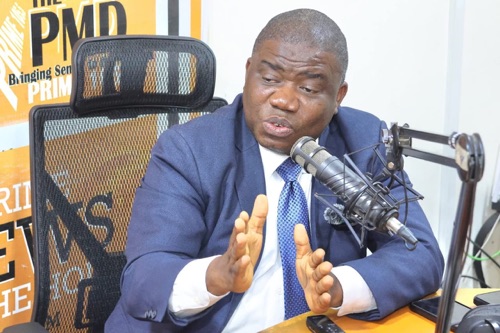Monrovia, Liberia – Liberia’s economy is showing strong signs of stabilization, with inflation dropping to a single-digit rate of 5.6% and the Liberian dollar gaining strength, according to Deputy Minister for Economic Management, Hon. Dehpue Zuo. Speaking in a series of public engagements, the Deputy Minister credited this progress to President Joseph Boakai’s strategic re-engagement with the International Monetary Fund (IMF) —culminating in a historic milestone: the first-ever direct budgetary support from the IMF to Liberia.
A “Medical Doctor” for an Ailing Economy
Appearing on Prime Morning Drive on Tuesday, Hon. Zuo described the inflation rate as a “reality of progress” and pointed to improved coordination between Liberia’s fiscal and monetary institutions as key drivers of the recovery. He emphasized that the Liberian dollar is stronger today than it was two to three years ago.
Reflecting on the economic conditions inherited by the Boakai administration, Zuo described a nation on the brink of collapse. He likened the IMF to a much-needed “medical doctor” brought in to rescue an ailing patient.
“Liberia had been dropped from the IMF’s Extended Credit Facility (ECF) due to poor performance by the past regime,” he said. “We were financially isolated. Nobody wanted to deal with us.”
Empty Reserves and a Debt Crisis
Deputy Minister Zuo detailed the economic chaos the new administration uncovered upon taking office. Foreign reserves had dwindled to just $2.4 million —barely enough to cover two months of imports and well below the international benchmark of three months. The previous government, he revealed, had to borrow $83 million from the Central Bank just to pay salaries after commercial banks stopped lending to the state.
President Boakai’s top economic priority, even before his swearing-in, was reinstatement into the IMF’s ECF program. This urgent move was critical for restoring investor confidence, accessing international support, and stabilizing the nation’s economy.
IMF Makes Historic Move: Direct Budgetary Support
That strategic return to the IMF has now yielded a breakthrough. For the first time in Liberia’s history, the IMF is providing direct financial support to the national budget —a shift from its traditional practice of only strengthening Central Bank reserves.
Out of a recent $26 million IMF disbursement, $12.5 million will go directly into Liberia’s budget, earmarked for vital social sectors such as health, education, and agriculture.
“The 26th tranche was originally meant for the Central Bank’s reserves,” Hon. Zuo explained during a public lecture. “But because of our performance and the peculiar way we’ve managed the economy, $12.5 million will now go to direct budgetary support. That’s unprecedented for the IMF.”
Easing Public Sector Strain After USAID Suspension
This lifeline comes at a critical time. Following the recent suspension of USAID funding, key public services faced severe disruption. Deputy Minister Zuo emphasized that the IMF funds will help cushion these challenges.
“When the USA cut happened, activities in health, education, and agriculture became difficult,” he said. “The government had to reallocate funds under tight constraints. That’s why this support is important—it reflects fiscal responsibility and builds trust.”
The direct IMF budget support will be allocated to:
- School feeding programs
- Hospital medical supplies and essential drugs
- Emergency education support for students studying abroad
“This is not money to sit in reserves,” Zuo stressed. “It’s direct support to ensure our children can eat in school, hospitals have medicines, and students affected by international funding cuts can continue their education.”
Foundation for Growth and Trust
According to the Deputy Minister, the IMF-supported program has unlocked approximately $205 million in total, laying the foundation for structural reforms and long-term growth.
“This program helped us set the house in order,” Hon. Zuo said. “It stabilized the economy and signaled to the world that Liberia is a credible, responsible partner. It’s a good behavior reward.”
Regional Comparison and Income Gains
Hon. Zuo also indicated that Liberians are now earning better income compared to some of their West African neighbors.
“Look at the minimum wage in Sierra Leone or even Nigeria—which has a much bigger economy. The average Liberian today earns relatively more in several sectors,” he stated.
He pointed to government salary reforms and wage alignment in agriculture, education, and health as examples of sectors where income growth has outpaced regional averages. “It’s not just about economic theory—it’s about real impact. Families are feeling the difference,” he added.
He concluded with optimism for Liberia’s future under President Boakai’s leadership, noting that the administration’s performance is not just restoring economic health but also improving incomes and quality of life.
“Today is a better celebration for Liberia,” he said. “Liberia should be proud of President Boakai’s administration.”



